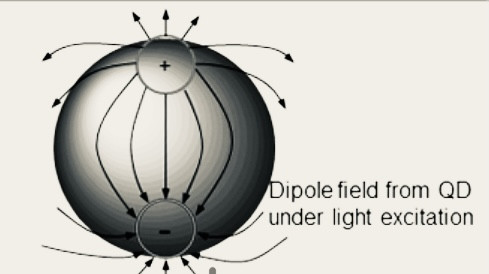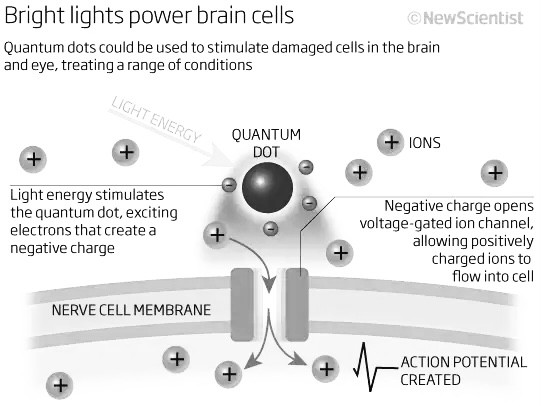#FamilyIsEverything. APL = 9.384/10 *Authorized conspiracy theorist *Not an authorized preacher.
The teams succeeded in creating action potentials within the neurons by exciting quantum dots nearby. The stimulation of the QD created a negative charged surrounding it and opened up the ion channels in the neurons. The ion channels are vital to stimulating the brain cells by allowing positive charges to flow into the cell and create an action potential. Additionally, the action potential in neurons is what sends messages to other neurons or nerve cells within the body allowing a form of communication to occur. The goal is to use quantum dots to control the abnormal signal firing within the brain...
By harnessing quantum dots-tiny light-emitting semiconductor particles a few billionths of a meter across-researchers at the University of Washington (UW) have developed a new and vastly more targeted way to stimulate neurons in the brain. Being able to switch neurons on and off and monitor how they communicate with one another is crucial for understanding- and, ultimately, treating- a host of brain disorders...
Note: US contrast agents, such as microbubbles (MBs), can be used to amplify these biophysical effects, enabling ultrasound-induced reversible permeabilization of cell membranes at low acoustic powers making them attractive for use in transepithelial drug delivery. Microbubbles consist of an inert gas core stabilized by a lipid or polymer shell typically 0.8–10 μm in diameter18. Several papers have demonstrated the ability of MBs to amplify the biophysical effects of ultrasound, such as cavitation.
The gas-filled, compressible core of MBs makes them responsive to ultrasound, causing them to compress and expand alternately. This cyclical behavior can increase cell permeability due to the formation of pores caused by either the interaction between microbubbles and cell membranes at low acoustic pressures, referred to as stable cavitation, or through shockwaves generated by the collapse of microbubbles proximal to the cell membrane under high acoustic pressures, referred to as inertial cavitation.






